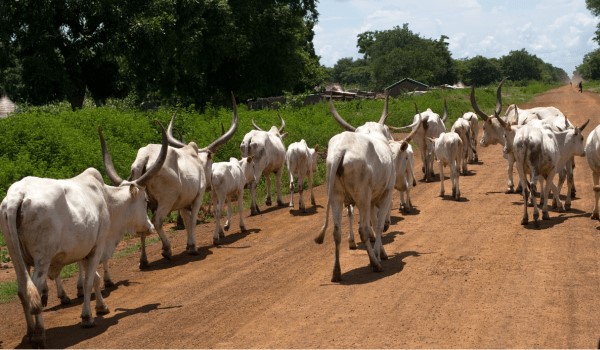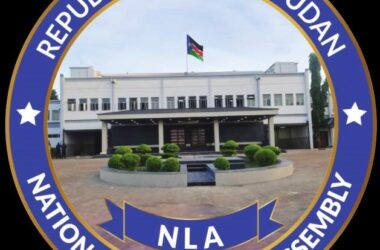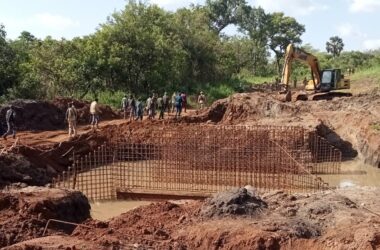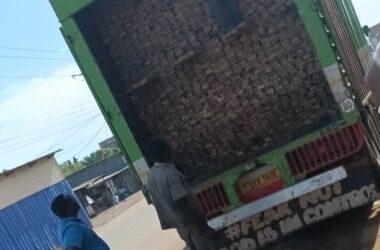By Kei Emmanuel Duku
South Sudanese and Uganda herders, known as “Balaalo,” who settled on Aitak Sugar Factory land in Aitak Sub-County since 2022, have been evicted.
Officials in Amuru District, Northern Uganda, have confirmed the eviction of a groups, saying the operation followed President Museveni’s Executive Order.
The Minister for Northern Uganda supervised the exercise which was implemented by Resident District Commissioners and security agencies across the northern districts.
Leonard Komkeck, spokesperson for Aitak Sugar Factory, said that between July 7th and 8th, over 5,000 cattle, belonging to both South Sudanese and Ugandan pastoralists, were evicted from the factory’s 25,000-acre land.
On the first day, 2,580 cattle were removed, followed by 2,815 on the second day.
Komkeck confirmed that the South Sudanese herdsmen were escorted to Elegu Border Post, before crossing into Nimule area of Eastern Equatoria State. Ugandan pastoralists, who are not natives of Northern Uganda, were escorted past Karuma Bridge.
“We came to a common understanding that we have to escort the animals up to the South Sudan border, and that is how we have done it,” Komkeck said.
He added that the presence of the nomads within Aitak Sub-County, particularly on Aitak Sugar Factory land, had affected agricultural operations. Uncontrolled herds of livestock fed on newly planted sugarcane, resulting in substantial losses.
The spokesperson clarified that the evicted cattle belonged to both South Sudanese and Ugandan pastoralists, collectively referred to as “Balaalo,” and they have been completely removed from Aitak Sub-County.
“We completely evicted them because last dry season, very many sugarcane plantations were destroyed by the animals. During this dry spell, we don’t want the same thing to happen again because now plantation land has rejuvenated. In the past, we had challenges, but this presidential directive has helped us a lot,” he added.
Meanwhile, according to Amuru District Local Council Five Chairperson, Lakony Michael, after the eviction exercise is fully executed, the government plans to pass legislation to regulate land use in Uganda.
Lakony explained that once enacted, the law would help regulate how herdsmen operate in Northern Uganda, particularly concerning agricultural land. He noted that the majority of the rural population in Northern Uganda depends entirely on farming for their livelihoods, and livestock grazing in and around farmland is a potential source of conflict.
“After the eviction, the administration is going to adopt a law to guide pastoral nomadism in Uganda. And they have already set the verification process to really authenticate land ownership, and also the rights of the land, the utilization of the land process,” Lakony said.
The Local Council Five Chairperson emphasized that the eviction was implemented without any segregation, targeting both South Sudanese and Ugandan “Balaalos.” Those who refused to leave the areas would have their livestock confiscated by the Ugandan government.
Lakony acknowledged that during the eviction process, there were complaints from some herdsmen identifying themselves as refugees. They have been instructed to settle in one designated area pending further screening by the Office of the Prime Minister, which will inform the next course of action.
He reiterated that those who refuse to obey the Presidential Directives will have their livestock confiscated. If they fail to provide proof of rightful ownership, authorities will automatically auction the cattle.
“Within a period of time, if no one claims, it will automatically be auctioned by public auction through the Public Procurement and Disposal of Public Assets Act (PPDA Act). That is when there is no one claiming ownership, and then the government has the right, using the Public Procurement and Disposal Act, to auction. And the money goes into a consolidated account,” he added.
The Amuru District Chairperson further stated that the Office of the Prime Minister, with its support, would handle those who claimed to be refugees in accordance with laws guiding refugees in Uganda.
The South Sudanese herdsmen reportedly crossed into Aitak Sub-County in Amuru District, Northern Uganda, in 2022 after experiencing insecurity.




